20+ Years Experience
Specialist Education Providers

Enquire Today For A Free No Obligation Quote
When it comes to children’s development, self-regulation plays a vital role in shaping their emotional well-being and cognitive abilities.
In this section, I will explore the significance of self-regulation and how it relates to outdoor play. By examining the connection between outdoor play and self-regulation through this framework, we can gain insights into the benefits that outdoor activities bring to a child’s emotional and behavioural development.
Self-regulation plays a crucial role in the development of children. It encompasses the ability to manage and control one’s emotions, behaviours, and impulses.
Understanding self-regulation and its importance for children’s development allows us to recognise the impact it has on their overall well-being and success in various aspects of life.
By acquiring self-regulation skills, children can navigate social interactions, cope with stress, and achieve academic goals more effectively.
The concept of self-regulation refers to the ability to monitor and modify one’s behaviour in order to achieve desired outcomes.
It involves processes such as attention regulation, emotional control, impulse control, and cognitive flexibility.
Through self-regulation, children learn how to manage their emotions in appropriate ways, make responsible decisions, solve problems effectively, and adapt to changing situations.
One key aspect of understanding self-regulation is recognising that it is a skill that can be developed over time through practice and experience.
Children have the capacity for growth in their self-regulation abilities, and it is important for caregivers and teachers to provide opportunities for them to develop these skills.
Research suggests that children who possess strong self-regulation skills are more likely to have better social relationships with peers, demonstrate higher academic achievement, display fewer behavioural problems, and experience lower levels of stress.
Furthermore, these skills serve as a foundation for lifelong learning and success.
Overall, self-regulation is a vital aspect of child development that deserves attention, and understanding its role paves the way for creating an optimal environment where every child can thrive.
When it comes to the connection between outdoor play and self-regulation, there are a few key aspects to consider.
One important factor is the benefits of outdoor play for children’s emotional and behavioural self-regulation.
Research has shown that spending time in natural environments can have a positive impact on children’s ability to manage their emotions and regulate their behaviour.
Additionally, outdoor play provides unique opportunities for children to practice their self-regulation skills in a dynamic and ever-changing environment.
Sensory processing and executive functioning also play a significant role in self-regulation, and outdoor activities can specifically help children with sensory processing issues and impaired executive functions.
These factors contribute to the fascinating link between outdoor play and self-regulation for children.
Outdoor play has numerous advantages when it comes to children’s emotional and behavioural self-regulation.
By engaging in outdoor activities, children can develop important skills to regulate their emotions and behaviours effectively.
These activities provide them with opportunities to navigate different social and physical environments, which plays a significant role in enhancing their self-regulation abilities.
Additionally, outdoor play promotes physical exercise and sensory experiences that contribute to the overall well-being of children.
It is crucial for parents, teachers, and caregivers to encourage and facilitate outdoor play as it fosters the development of self-regulation skills in children.
Moreover, outdoor play not only helps children regulate their emotions but also enables them to learn valuable problem-solving and decision-making skills.
When engaging in various outdoor activities, children are faced with challenges that require them to think critically and make appropriate choices.
This process of decision-making strengthens their ability to regulate their behaviour effectively while considering different perspectives.
Furthermore, outdoor play has a positive impact on enhancing children’s social interaction skills.
It provides them with opportunities to engage with peers, negotiate roles, resolve conflicts, and practice empathy.
By interacting with others during outdoor play, children learn how to manage their emotions in social settings successfully.
They develop essential skills such as perspective-taking, cooperation, and communication, which are pivotal for emotional and behavioural self-regulation.
Outdoor play offers valuable opportunities for children to develop and practice self-regulation skills.
Through engaging in outdoor activities, children are able to learn how to control their emotions, behaviours, and impulses.
They can experience various challenges, such as navigating obstacles or taking turns in games, which require them to regulate their actions and responses.
Additionally, the open-ended nature of outdoor play allows children to make decisions, problem-solve, and learn from their experiences, all of which contribute to the development of self-regulation skills.
In outdoor play settings, children have the chance to interact with their peers and engage in collaborative activities.
This social interaction provides them with opportunities to practice self-regulation skills like sharing, compromising, and taking turns.
Moreover, the physical nature of outdoor play encourages children to engage in gross motor activities that require coordination and self-control.
For example, climbing a jungle gym or riding a bike requires concentration and balance, helping children build their self-regulation abilities.
Furthermore, sensory processing plays an important role in self-regulation during outdoor play. The different textures, sounds, smells, and sights present outdoors provide rich sensory experiences for children to navigate.
By managing these stimuli effectively, they can regulate their arousal levels and emotional responses. Executive functioning skills are also crucial for self-regulation during outdoor play.
Planning activities or games independently or using strategies to achieve goals fosters executive functioning abilities like decision-making and impulse control.
In summary, outdoor play truly provides a unique environment where children can actively practice and enhance their self-regulation skills.
By engaging in various challenging activities that require control over emotions and behaviours as well as navigating sensory input effectively while making use of executive functioning processes like planning and decision-making; children can develop effective self-regulation abilities that will benefit them throughout their lives.
Sensory processing and executive functioning play a crucial role in self-regulation.
The way our senses process information from the environment and how our brain manages cognitive processes greatly affect our ability to regulate ourselves.
Sensory processing involves taking in, organising, and responding to sensory stimuli, while executive functioning involves skills such as attention control, impulse control, working memory, and decision-making.
This combination of sensory processing and executive functioning allows individuals to modulate their emotions, behaviours, and responses to different situations effectively.
In the context of self-regulation, sensory processing helps individuals receive input from their environment and interpret it appropriately.
For example, if a child is playing outdoors and a loud noise startles them, their sensory processing abilities will help them regulate their response by quickly recognising the sound and determining if it poses any danger.
On the other hand, executive functioning skills enable individuals to use higher-level cognitive processes to plan, initiate and sustain goal-directed behaviour.
In outdoor play situations, these skills are necessary for children to regulate their impulses, make decisions about appropriate actions, switch between tasks or rules when necessary, and inhibit inappropriate behaviours.
Furthermore sensory processing and executive functioning are interrelated – strong sensory processing skills support effective executive functioning abilities.
When a child has well-developed sensory processing skills such as efficient filtering of distractions or fast response to changes in the environment combined with strong executive functioning skills like cognitive flexibility or impulse control; self-regulation becomes easier for them.
To enhance children’s self-regulation during outdoor play experiences further emphasis can be placed on offering activities that engage both sensory processing and executive functioning simultaneously.
This could involve providing opportunities for children to navigate complex outdoor environments that require problem-solving skills or engaging in activities that stimulate multiple senses simultaneously; such as running games involving visual tracking or obstacle courses with varying textures for tactile stimulation.
By understanding the critical role of sensory processing and executive functioning in self-regulation during outdoor play activities we can create more engaging and meaningful experiences that support children’s overall development.
Therefore, it is important for teachers, parents, and caregivers to be mindful of these factors and provide opportunities for children to practice and strengthen these skills in order to promote their self-regulation abilities effectively.
Outdoor activities act as a therapeutic playground, helping children with sensory processing issues and impaired executive functions regulate their minds one adventure at a time.
Outdoor activities have been shown to be particularly beneficial for children who experience sensory processing issues and impaired executive functions.
These activities provide a unique opportunity for children to engage in sensory experiences, which can help them develop better regulation skills.
For example, the act of running or climbing on playground equipment engages multiple senses, such as touch and proprioception, allowing children to practice regulating their responses to these stimuli.
Additionally, outdoor play often involves activities that require planning, problem-solving, and decision-making, which can help improve executive functioning skills in children with impairments.
By regularly participating in outdoor activities, children with sensory processing issues and impaired executive functions can enhance their self-regulation abilities and improve their overall well-being.
Research has shown that outdoor play is particularly effective in addressing sensory processing issues because it provides a rich environment filled with different textures, sounds, and visual stimuli.
These natural elements challenge the child’s sensory system and allow them to learn how to regulate their responses appropriately.
For example, walking on uneven surfaces like grass or sand can help children develop balance and proprioception skills while also providing a calming effect on the nervous system.
In addition to sensory benefits, outdoor activities also support the development of executive functions.
These higher-level cognitive processes are responsible for tasks such as planning, organising information, and self-control.
Outdoor play often involves challenges that require problem-solving and decision-making skills, such as navigating an obstacle course or playing team sports.
By engaging in regular outdoor play experiences that specifically target sensory processing issues and impaired executive functions, children can improve their self-regulation abilities over time.
Parents and teachers should prioritise providing ample opportunities for children to participate in outdoor activities that expose them to various sensory stimuli while also promoting the development of executive functions.
Don’t miss out on the numerous benefits of outdoor play for children with sensory processing issues and impaired executive functions!
Encourage your child or student to spend time outdoors engaging in activities that challenge their senses and promote self-regulation.
Whether it’s climbing on playground equipment, exploring nature, or participating in outdoor games, these experiences can have a positive impact on their overall development and well-being.
Embrace the power of outdoor play and support your child’s journey towards improved self-regulation skills today!
As we dive into the topic of outdoor play activities that promote self-regulation, there are various avenues to explore. Let’s start by delving into different outdoor games and activities that encourage self-regulation.
These engaging experiences not only provide children with enjoyment but also enhance their ability to regulate emotions and behaviour.
Next, we’ll uncover the ways climbing activities on playground equipment support self-regulation in children.
Additionally, we’ll explore the benefits of outdoor learning and play in developing self-regulation skills.
Moreover, we’ll shed light on specialised outdoor playground equipment designed to cater to the needs of children with special educational requirements.
Through these insights, we’ll discover the unique role outdoor play can have in fostering self-regulation.
Exploring various outdoor play options that promote self-regulation is crucial for children’s development.
These activities provide opportunities for children to engage in sensory processing and executive functioning, enhancing their emotional and behavioural self-regulation skills.
Some examples include climbing on playground equipment, participating in outdoor games, and engaging in outdoor learning experiences.
These activities not only offer physical exercise but also challenge children to regulate their emotions, behaviour, and impulses.
The combination of play and self-regulation practice helps children develop vital skills necessary for their overall well-being.
In addition to these points, it is essential to consider the individual needs of each child when choosing outdoor games and activities.
Different children may have diverse strengths and challenges when it comes to self-regulation.
Creating an inclusive environment that supports everyone’s unique requirements will ensure optimal benefits from these outdoor experiences.
Scaling new heights on the playground not only builds physical strength but also boosts children’s self-regulation skills.
Climbing activities on playground equipment play a crucial role in promoting self-regulation skills in children.
Through climbing, children engage their bodies and minds, requiring focus, coordination, and problem-solving.
This active play helps children develop their sensory processing and executive functioning, which are essential for self-regulation.
The challenging nature of climbing activities provides opportunities for children to practice persistence, resilience, and emotional control.
Additionally, climbing on playground equipment allows children to experience a sense of accomplishment and mastery, contributing to their overall self-confidence and self-regulation abilities.
Furthermore, the physical exertion involved in climbing activities stimulates the release of endorphins and other feel-good brain chemicals, which can positively impact mood regulation in children.
It also serves as a form of sensory input, helping children regulate their sensory systems and promote emotional well-being.
Incorporating climbing activities into outdoor play settings allows for a holistic approach to supporting self-regulation in children.
By combining the physicality of climbing with the enjoyment of being outdoors, children receive multiple benefits that enhance their overall development.
Research has shown that engaging in regular outdoor play promotes self-regulation skills such as impulse control, attention span, and emotional regulation in children.
With these findings in mind, educators and caregivers should prioritise providing ample opportunities for climbing activities on playground equipment during outdoor play to foster the development of self-regulation skills in children.
Specialised outdoor playground equipment caters to the unique requirements of children with special educational needs and disabilities.
This equipment is specifically designed to promote inclusive play and support the physical, sensory, and cognitive development of these children.
Designing inclusive outdoor spaces sends a powerful message of acceptance and equality. It promotes social interaction among all children and fosters an environment where everyone feels valued and included.
Creating an inclusive playground benefits not only children with special educational needs but also their peers. It enhances empathy, understanding, and tolerance among all children while encouraging cooperative play.
By providing specialised outdoor playground equipment designed for children with special educational needs, we can ensure that every child has the opportunity to experience the joy of outdoor play while promoting their overall development.
Don’t miss out on creating an inclusive space where all children can thrive!
When it comes to outdoor play, creating an environment that supports self-regulation is crucial for children’s development. In this section, we will share some tips for adults to support children’s self-regulation during outdoor play.
We’ll also discuss how to prepare children for potential changes in outdoor play situations, as well as how to recognise and address sensory overload during outdoor play.
Lastly, we’ll explore the importance of designating outdoor sensory spaces for relaxation and self-regulation activities.
Adults can play a crucial role in supporting children’s self-regulation skills during outdoor play. Here are three effective strategies to help promote self-regulation in children:
By implementing these tips, adults can create an environment that supports and promotes children’s self-regulation skills during outdoor play.
In order to support children in adapting to various outdoor play scenarios, it is crucial to equip them with the necessary skills and knowledge.
As they encounter potential changes in outdoor play situations, such as new rules or different environments, children need guidance to effectively navigate these challenges.
By preparing children for potential changes in outdoor play situations, we can foster their resilience and empower them to confidently explore new experiences.
It is essential for adults to provide a supportive framework that allows children to embrace uncertainty and develop valuable life skills through outdoor play.
Sensory overload can occur during outdoor play when a child’s senses are overwhelmed by the environment. It is important to identify and address this issue to ensure a positive play experience.
To recognise sensory overload during outdoor play, adults should be observant of signs such as increased agitation, frustration, or withdrawal.
They should also look out for physical indicators like covering ears or eyes, excessive movements, or avoidance of certain activities. When these signals are noticed, it is crucial to address the situation promptly.
Addressing sensory overload during outdoor play involves creating a calming environment and providing strategies to help children self-regulate.
This can include finding quiet spaces away from noise and distractions, offering soothing sensory activities such as deep pressure input or gentle swinging, and using visual cues or social stories to prepare children for potential sensory triggers.
By recognising and addressing sensory overload during outdoor play, adults can support children in developing their self-regulation skills and ensuring a positive and inclusive play experience for all.
Designating outdoor spaces for relaxation and self-regulation activities involves creating specific areas that cater to sensory needs and promote a sense of calm and regulation.
These designated spaces offer children opportunities to engage in activities that support their self-regulation skills, helping them manage their emotions and behaviours effectively.
By designating outdoor sensory spaces for relaxation and self-regulation activities, educators and caregivers can support children in developing important skills while providing them with a safe and calming environment to retreat when needed.
Ensuring access to these spaces empowers children with the tools they need to navigate their emotions effectively and fosters their overall well-being during outdoor play experiences.
Don’t miss out on the opportunity to create these designated spaces for your children’s well-being!
By providing an environment where relaxation and self-regulation are prioritised, you are equipping them with essential life skills while promoting a sense of calmness and emotional balance. Start designating your outdoor sensory spaces today!
Outdoor play provides opportunities for children to practice self-regulation skills. It allows them to manage their behaviour, emotions, and body movements while remaining focused and attentive.
Through activities such as playing with friends and climbing on playground equipment, children learn how to recognise, assess, and respond to different situations, helping them develop important self-regulation skills.
Although related, self-regulation and self-control are not the same. Self-control is a social skill used to keep emotions, behaviour, and impulses in line.
On the other hand, self-regulation is about managing oneself in difficult situations while remaining focused and attentive. It involves recognising and assessing emotions and reactions, and making appropriate responses.
Self-regulation skills are especially important for handling changes in circumstances and expectations.
Outdoor play can be beneficial for children with sensory processing issues and ADHD.
Climbing activities on playground equipment, repetitive motion, and climbing movements can help children regulate their sensory input.
Playing outdoors in different sensory environments allows children to experience and process sensory information, helping them develop self-regulation skills.
Additionally, outdoor play provides opportunities for learning flexible thinking and problem-solving, which can be challenging for children with sensory processing issues and ADHD.




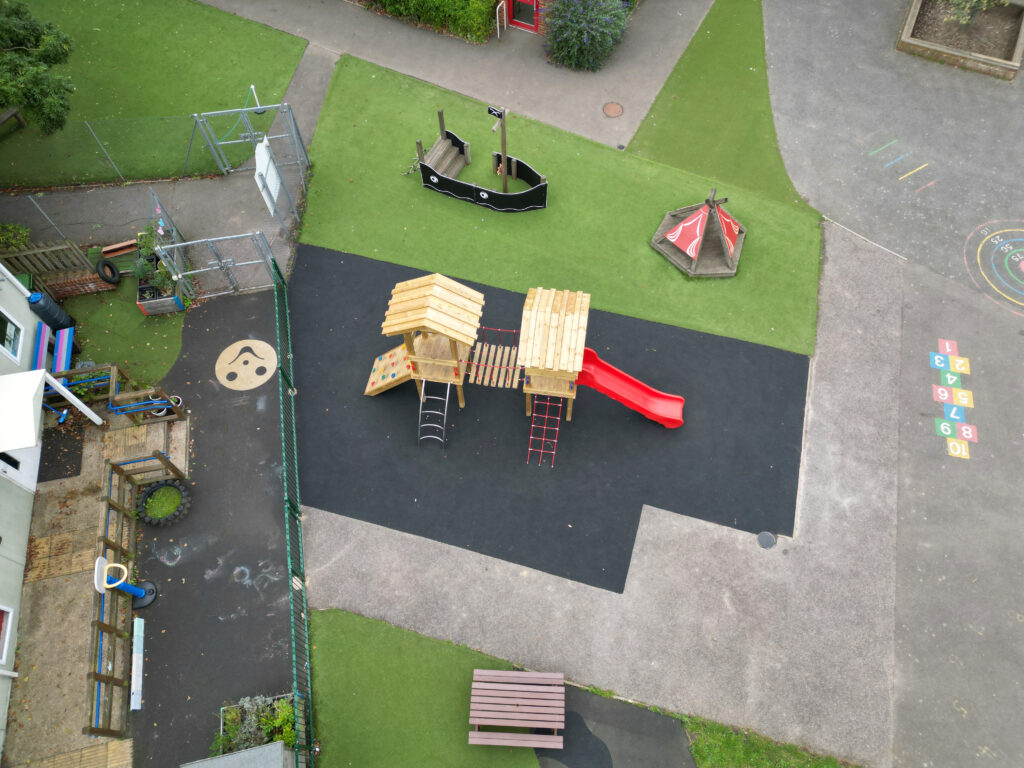

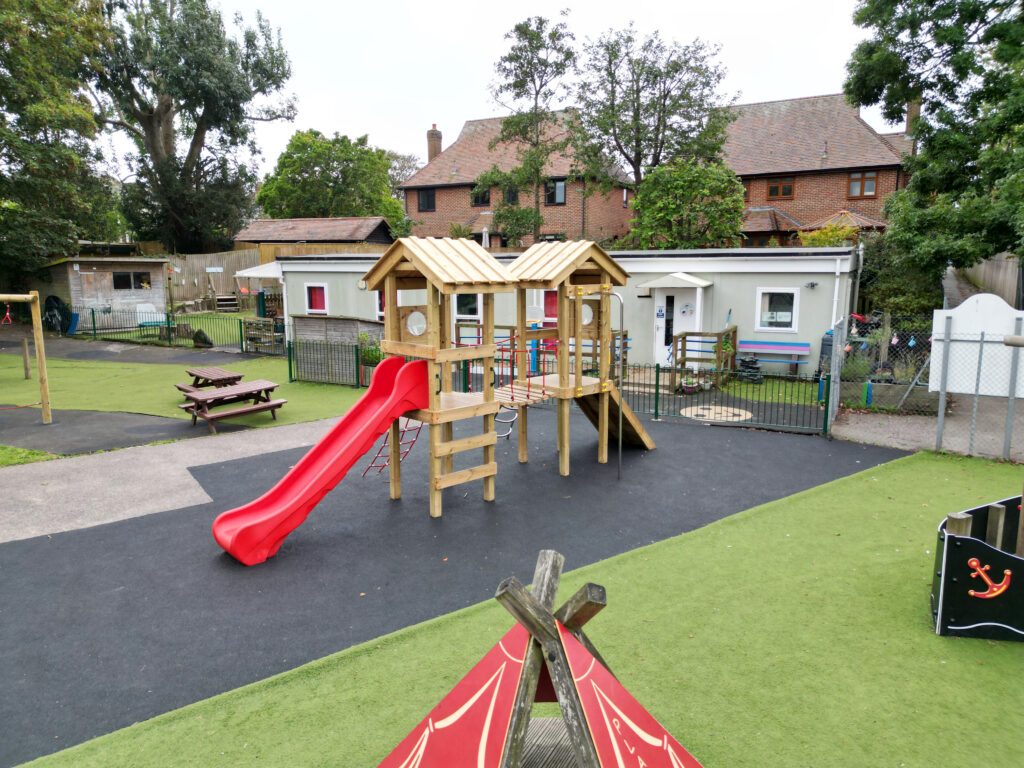
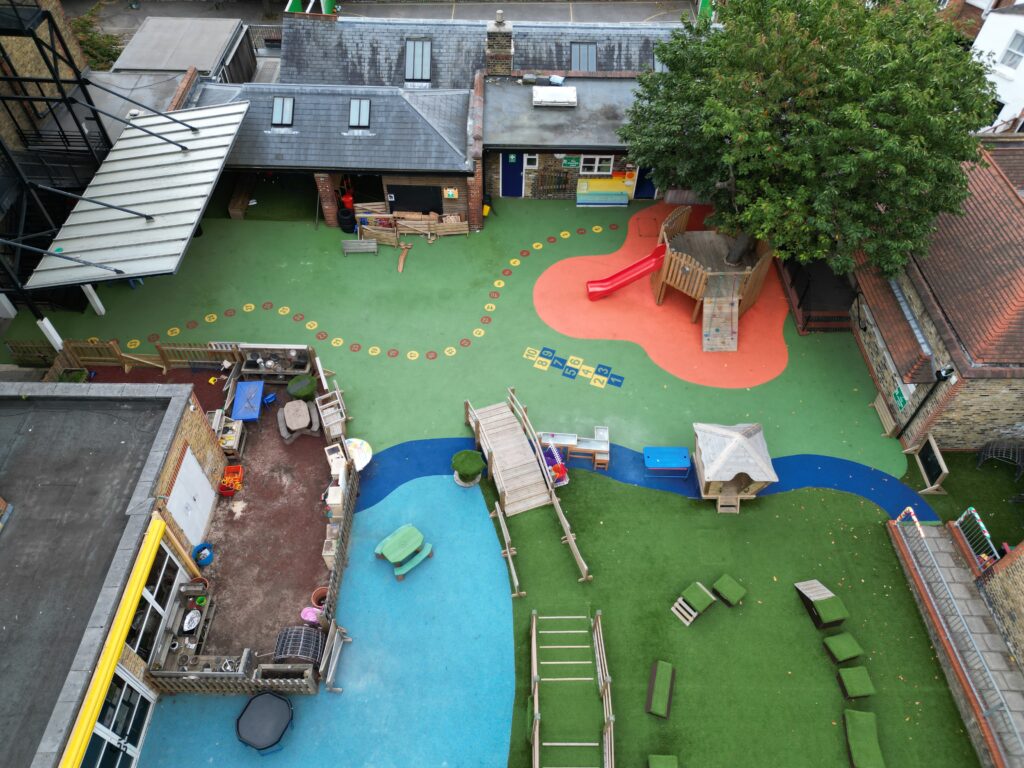






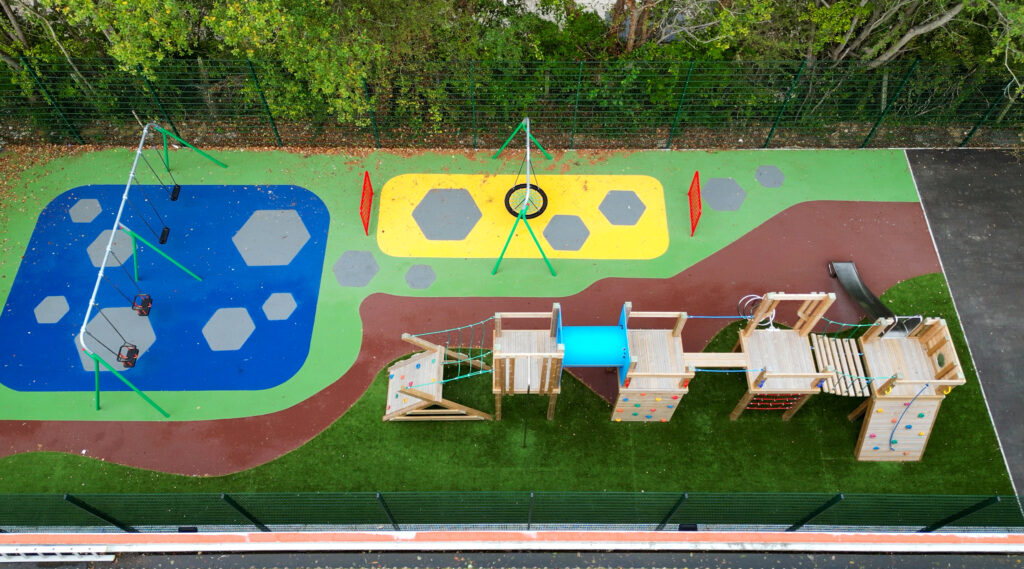










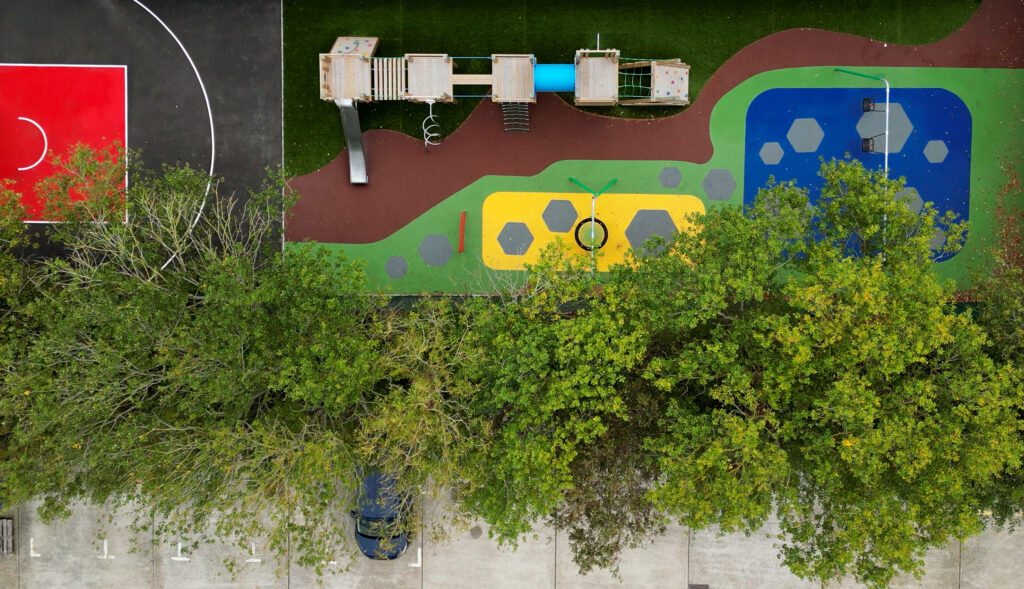









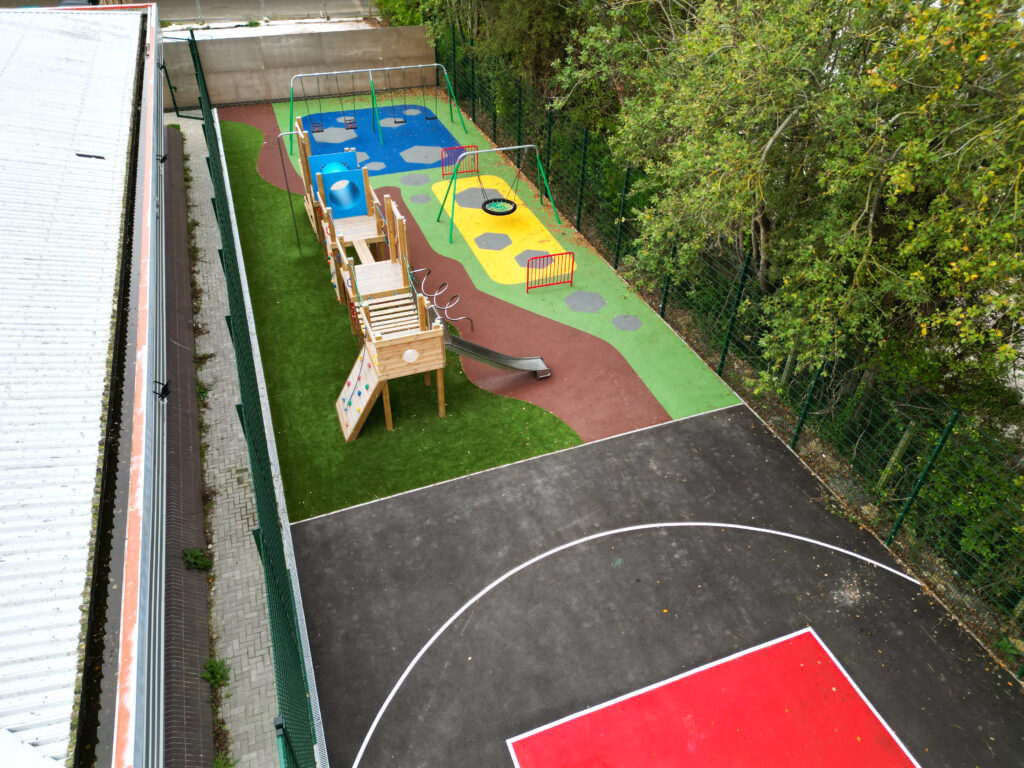



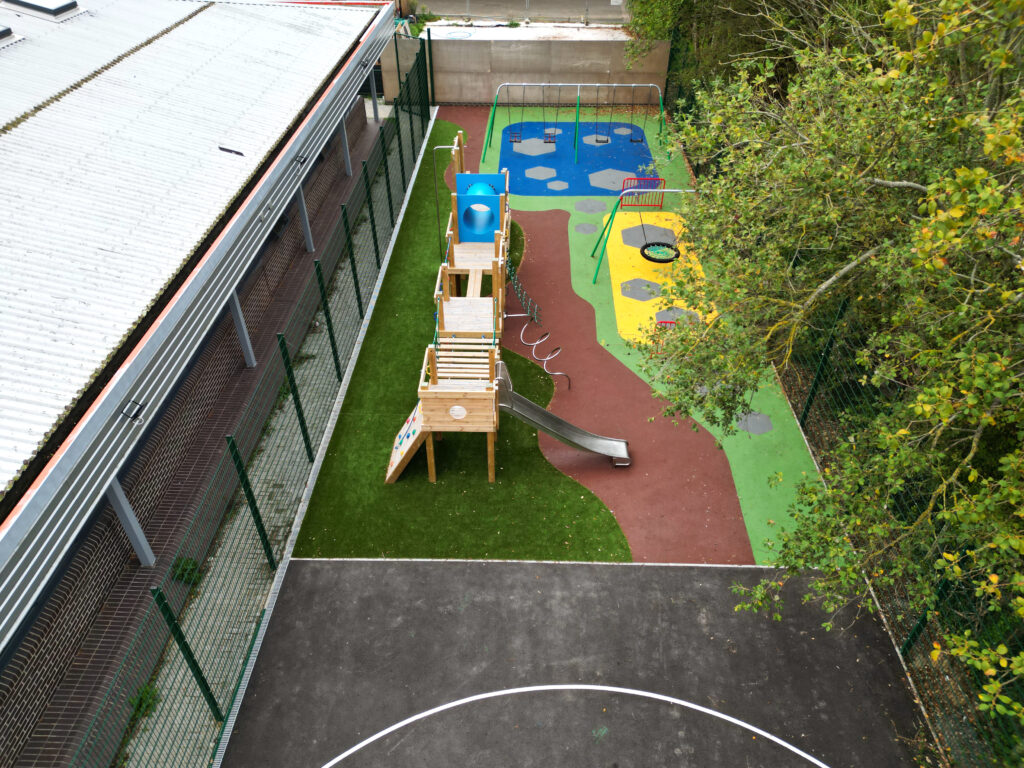







We Aim To Reply To All Enquiries With-in 24-Hours